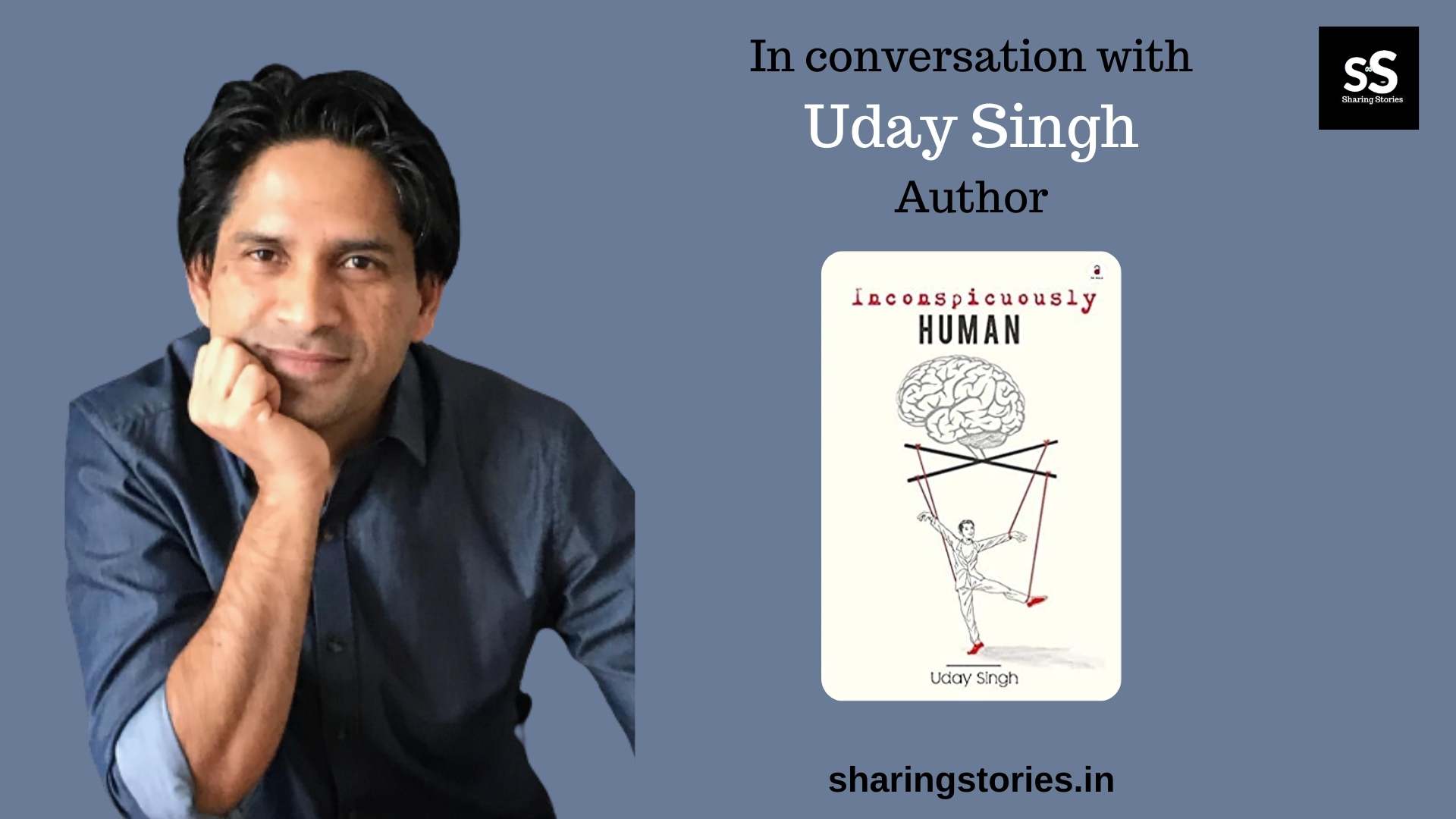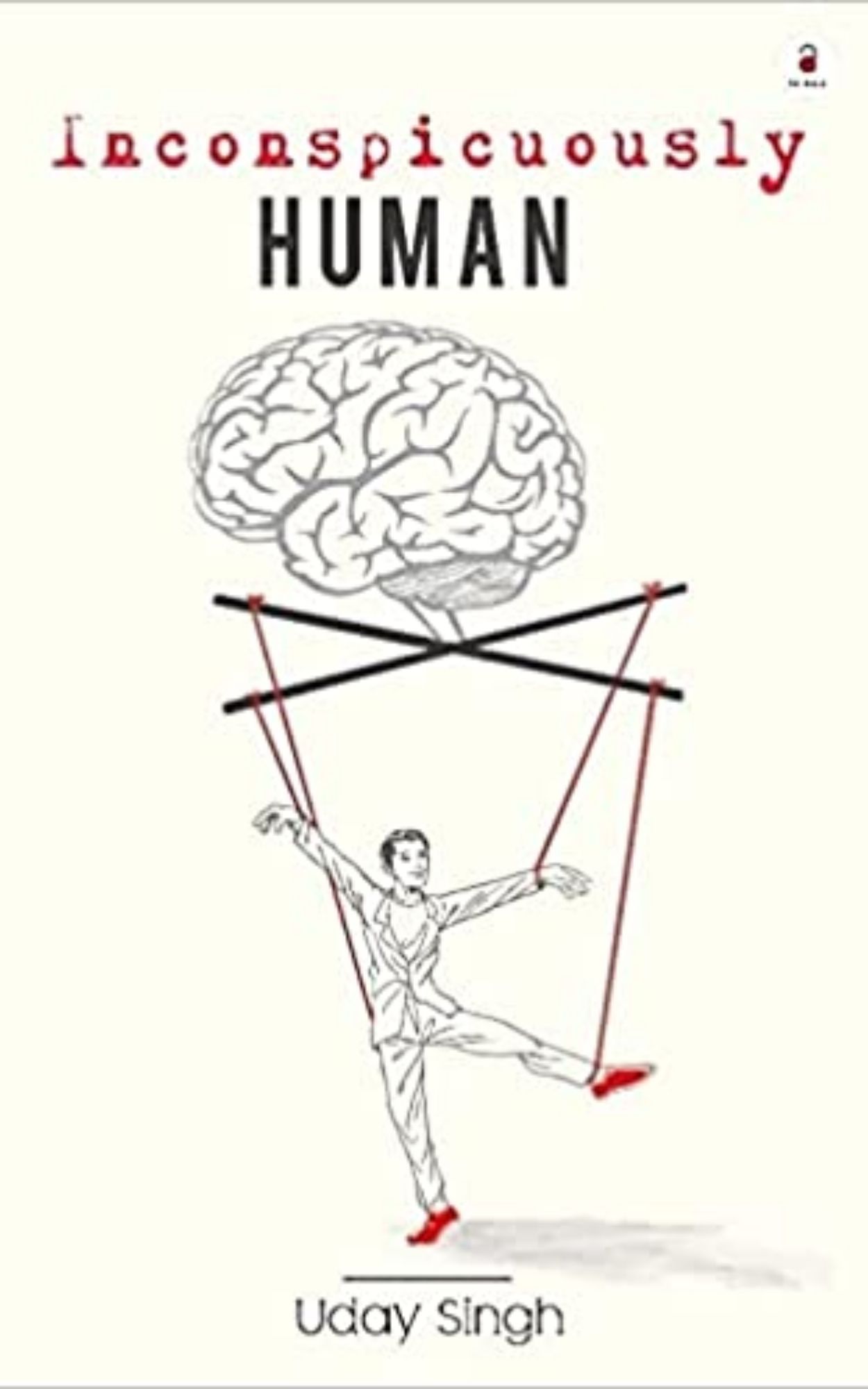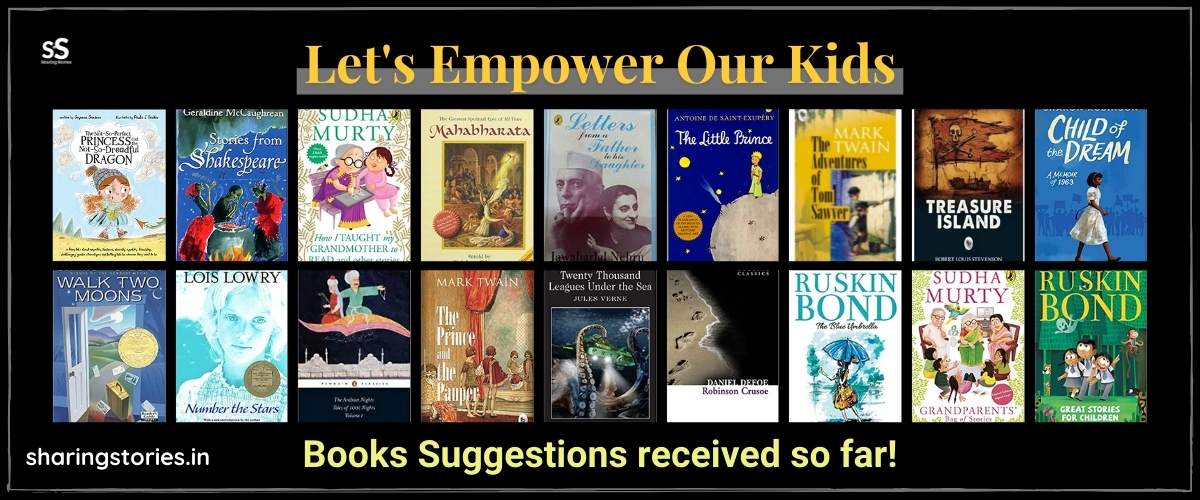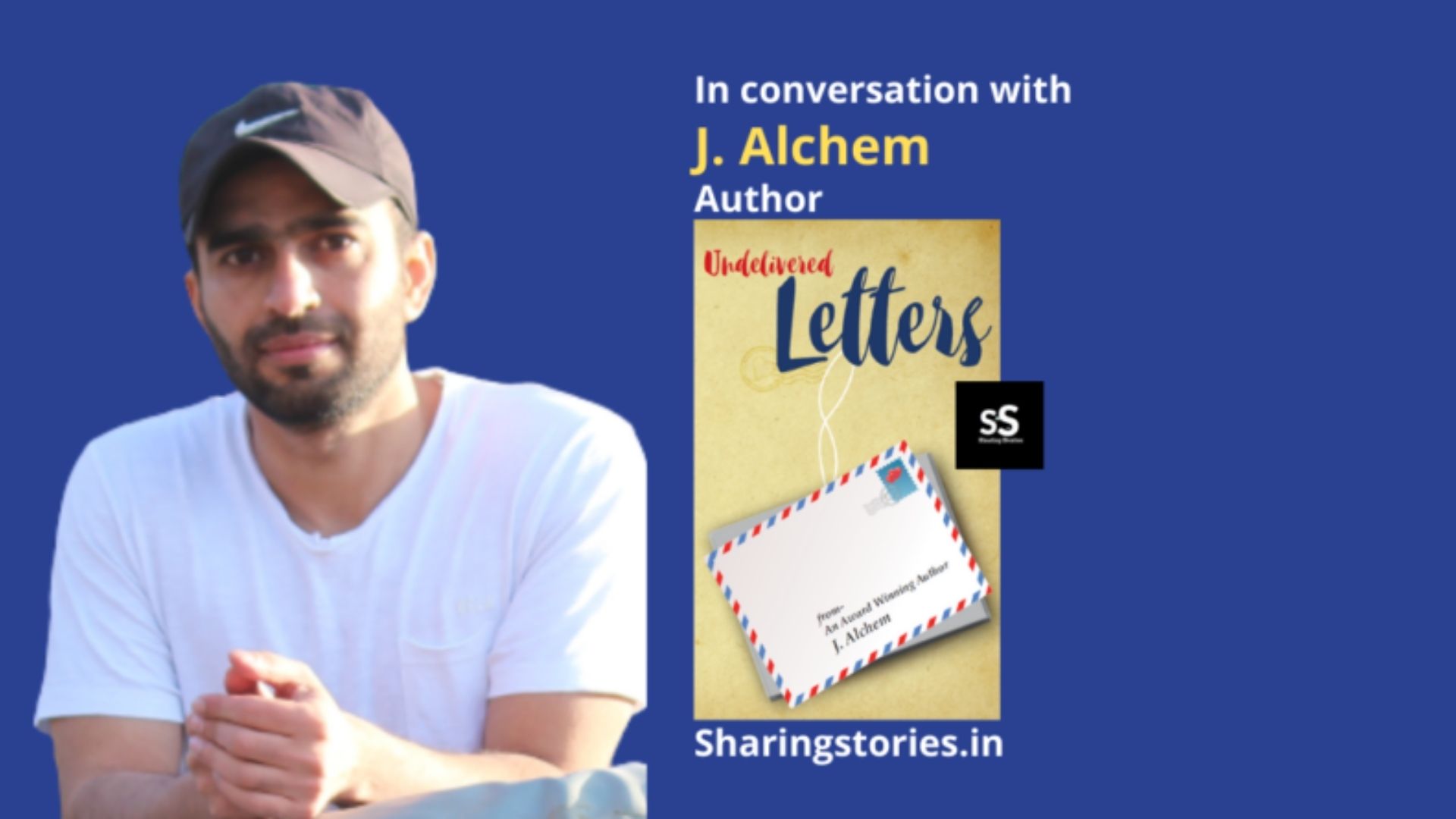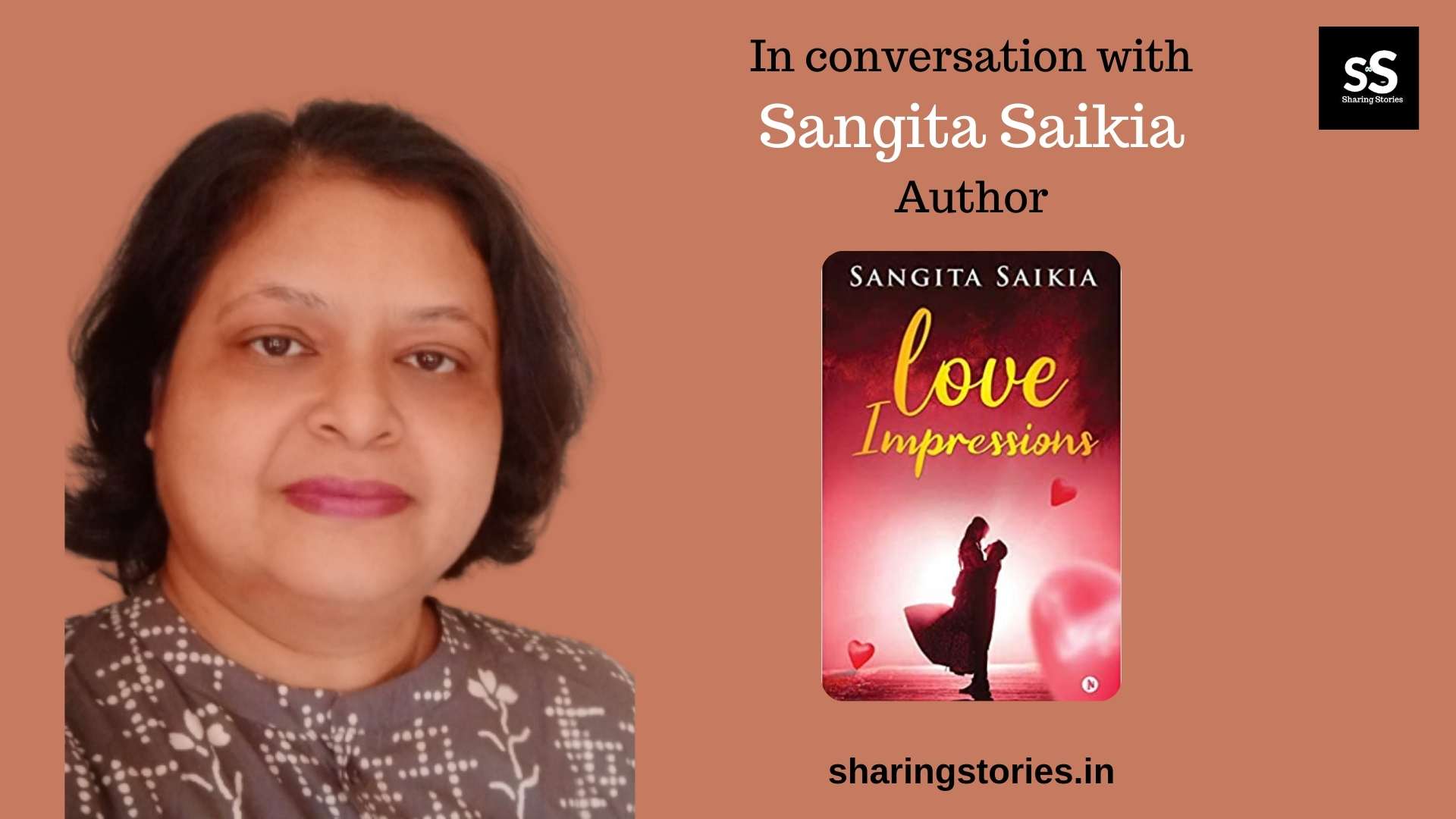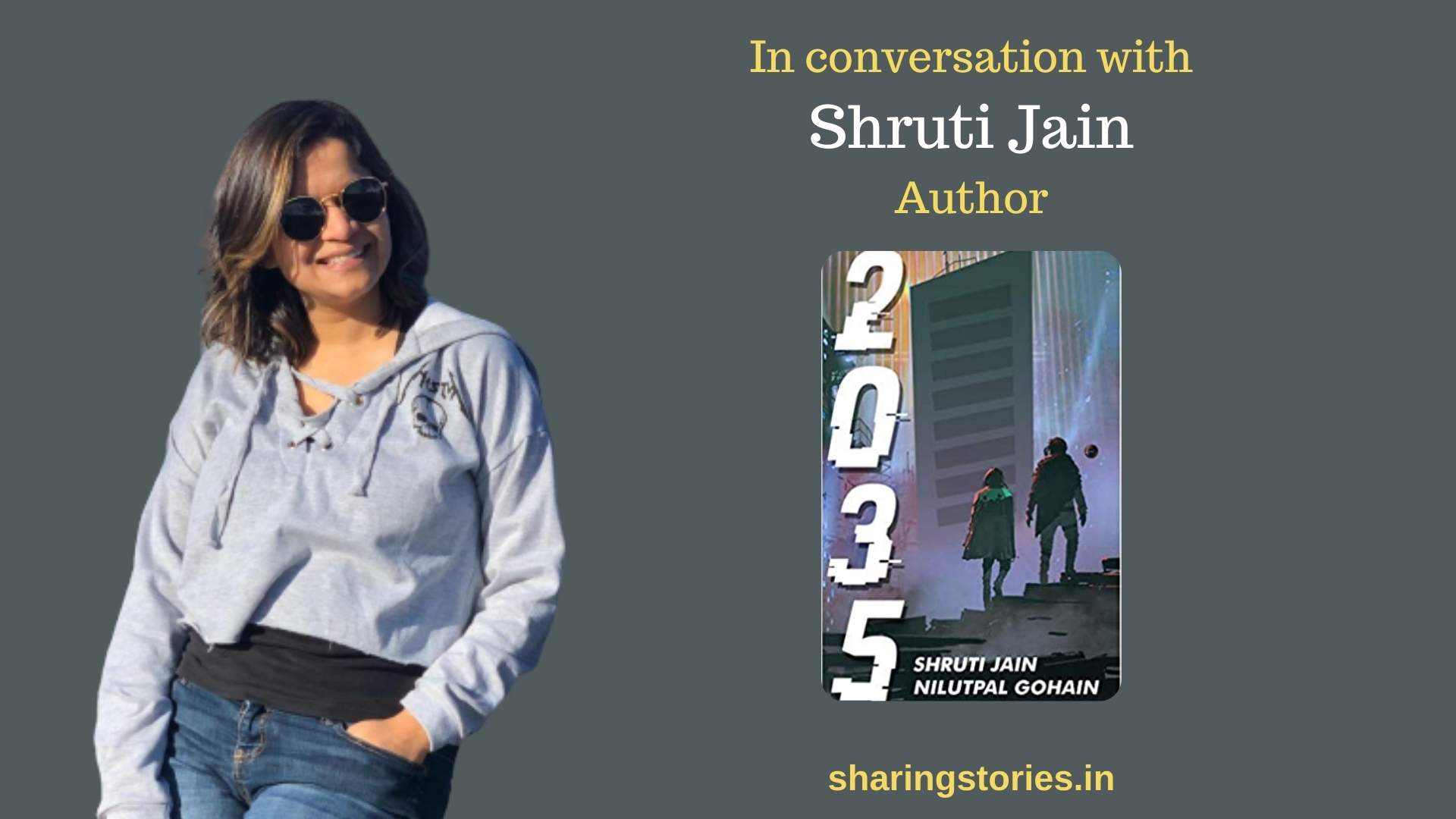Uday Singh
Book Title : Inconspicuously Human
Uday is a philosopher, an economist, and an engineer with a firm belief in the progressive march of humanity towards a better and brighter future. He is the author of the bestselling thriller—Pokhran. He has traveled and lived across continents and countries, and has benefited greatly from his mixed heritage with regards to understanding the impact of different cultures on people. Among other things, he used to be a management consultant with McKinsey & Co. and holds his Master of Business Administration from Columbia University. For his work, he has consulted and advised politicians, heads of corporations, and senior leaders of companies. Those experiences and learning are reflected in his stories and his books. While not writing, he works at an investment bank in New York City and lives with his family in Princeton, New Jersey.

How and when did you first realize your calling for writing books? Please tell us a bit about your books “Pokhran” and “Inconspicuously Human.” Who is your favorite character from your books and why?
My two books below to two different genres – first one is fiction thriller, and the second one is non-fiction
My first book, Pokhran, is a dramatized and fictionalized story of the protagonist, Chaitanya, that borrows heavily from real life events and anecdotes. It is a story around the smiling Buddha nuclear test and its aftermath.
My second book, Inconspicuously Human, is first of all a non-fiction and it deals with the micro-behaviours or tendencies that lead to disproportionate impact on our lives. Most of the times these tendencies are subconscious and hidden under so many layers, that it is extremely difficult to isolate them and understand them. This book makes an attempt at presenting the experimental basis for understanding those tendencies in an easy to read and scientific-jargon-free manner.
As to the favorite character from the first book, it has to be Zara, the Yazidi architect. She is intelligent, confident, and has amazing ease in connecting with people. It was a joy to write about her and the energy she brings to the story.
“Sometimes, we do not get a chance to thank each one who has helped us in our Journey.” Let the readers get a chance to know about all the important people who have played a part in this ‘Author Journey of Yours’.
Mr. Arup Bose – Srishti Publishers (for opening the doors for my first book)
Ms. Lalitha Ravindran – Literary Agent
Ms. Deepthy Nair – Alcove Publishers
Mr. Jyotirmoy – Superb Editor
Ms. Aditi Shah – Amazing Social media posters designer
Mr. Vibhuthi – Amazing Social media promotion support
Ms. Lipika Bhushan – PR media
Mr. Ryan Kenneth and Mr. Vivek Cornelio – Media promotion support
WHSmith India airport stores
Odyssey India retail stores
According to you which are the 5 books that everyone should read and who are your top 3 Authors and what impact did they have in your journey as a writer?
Top 5 books:
1) “Why Nations Fail: The Origins of Power, Prosperity, and Poverty” – by D. Acemoğlu, J. A. Robinson
2) Breaking the Spell: Religion as a Natural Phenomenon – by D. C. Dennett
3) The Selfish Gene – by R. Dawkins
4) The Histories – by Herodotus
5) A Troublesome Inheritance: Genes, Race and Human History First Edition – by Nicholas Wade
I have four authors that I admire, and draw inspiration from, for different genres of writing – Paulo Coelho when it comes to writing fiction with amazingly cogent flow (essentially, what he managed to accomplish in ‘The Alchemist’), Robert Heinlein for structuring a complex storyline where everything ticks and ties with engineering precision, Daniel Dennett for building logical arguments, about quite amorphous and at times nebulous topics, and guiding readers through to quite satisfying conclusions, and Malcolm Gladwell for translating academic research (that would otherwise have stayed in the academic circles) into stories and anecdotes that pique the interest of the non-academically inclined readers
What inspires you to write? Where do you get information or ideas for your books?
I draw inspiration from the undeniable need to communicate a central idea or concept – such as Paracracy in Pokhran or the notion that we don’t truly know our limits in Inconspicuously Human. It takes a long time for that central idea to get crystallized in my mind and then the research just naturally flows as a direct result of me being interested in that topic. Most of my research is through a combination of internet and other books.
Having traveled across multiple countries and continents, what are your takeaways? Are those observations and learnings visible in your books?
With regards to the takeaways from my travels – it is a much longer answer, but I will attempt to be concise for the purposes of this interview. For me, travel is always about connecting with people. And every new interaction changes me, sometimes in subtle imperceptible ways and rarely in a fundamental way, for the better and makes me more aware of different perspectives for looking at the same thing.
Absolutely. Be it about the genesis of culture (in Inconspicuously Human) to the plight of Yezidi refugees (in Pokhran), none of those would have landed on my radar without the behind of having traveled and interacted with people that opened up windows into those topics or thoughts or ideas.
Could you share a few tips for budding Authors and aspiring writers?
Hard work and Persistence. Don’t try to avoid hard work or required complexity. Instead, go where the entropy, gravity and friction are the greatest, as that is where our Universe buries its greatest treasures.
What has been your most cherished experience as a writer? Which is your best-preferred genre?
When one of the readers connects with me and asks me to elaborate on a topic/ a discussion point that was mentioned in one of my books. The more buried the topic/ discussion point is, the more cherished that experience becomes, as my mind registers that as a validation of the reason for the existence of that book. My preferred genre would be mystery.
Being an economist, how have you contributed to Humanity? How has this evolved you in person?
I would like to think that my contribution to Humanity, will be the concept of Paracracy – a governance concept that I propose in my first book, Pokhran, where everyone starts out life at the age of 21 years with zero wealth or assets from their parents or prior generations. Although I made that proposal, I am a realist and I don’t believe that such a concept will be installed in any of the current data democracies in my life time. Still, I made that proposal as a way to initiate that thought or discussion which might continue for the next 200 years or so before everyone is warmed up to the idea of having no inheritance.
If anyone reading interview is wondering how governance is connected to economy, then one has to just look at the evolution of democracies away from monarchy which has allowed better distribution of wealth and hence created more broader markets for non-essential/ luxury products and services (which previously would only be consumed by the royalty, which was usually a very small group of individuals)
Are you working on anything at present that you would like to share with your readers? What are your future plans?
Future books that are brewing in my mind are Ennui (fiction, a neuroscience-based thriller), Rice Economy (non-fiction, with focus on true nature of savings and the physical need for reserve ratios for banks apart from the risk of default), and God is in small things (non-fiction, a deep dive into how small rules like the octet-rule in chemical reactions can lead to macro structures like human beings and emotions; how wounds heal themselves; how trees balance themselves; how respecting the straight and parallel lines/ being on time/ following queues can lead to more organized societies).
How can a writer keep the mental block or writer’s block away from his/her creativity?
This is a tough one. The only way to get out of a mental block is to not force it but to continue to operate as if it is never going away. At least for me, that takes the stress away from having to unblock it, and allows me to focus on new and potentially interesting things. And the energy and inspiration from those other things naturally bleeds into dissolving the mental block, usually.
At Sharing Stories, we have an ongoing campaign ‘Let’s Empower Our Kids’. Please suggest some books here that you would want your child to read before the age of 15 which could help him in understanding certain dimensions of human life like empathy, sympathy, relationships, etc.
I am glad you have this campaign
1) Cyropaedia by Xenophon (this is an amazing book for leadership)
2) Jonathan Livingston Seagull by Richard Bach (small book but packs a heavy punch)
3) Notes to Myself by Hugh Prather
Rapid Fire Round
1. Favorite Place, Actor & Actress, Person, Food, beverage….
Pokhran, Benedict Cumberbatch, Charlize Theron, Elon Musk, anything vegan, beer respectively
2. Your other Talents apart from writing….
None, the verdict is still out as to whether I have talent for writing
3. Your First Love…
Progressive Innovation
4. Favorite Quote….
Go where the entropy, gravity and friction are the greatest, as that is where our Universe buries its greatest treasures
(I can’t blame anyone else for this, as this is my own guiding principle)
5. Favourite Character from a book…
The rebellious barnacle that lets go of the rock, in The Illusions by Richard Bach
What if Round
1. What if you had to live with only three things all your life, what would the three things be?
Converse, eat, and sleep
2. What if you were given the power to change one thing from this world, what would you change?
Install Paracracy across all countries that will level the playing field for all (at the start of their lives without limiting their ability to reach full potential)
3. What if you had all the money in this world, what would you do first?
Precisely whatever I am doing. I believe we are all limited by our imaginations and not by access to capital or money
CONNECT WITH US TODAY!
This form is disabled.

